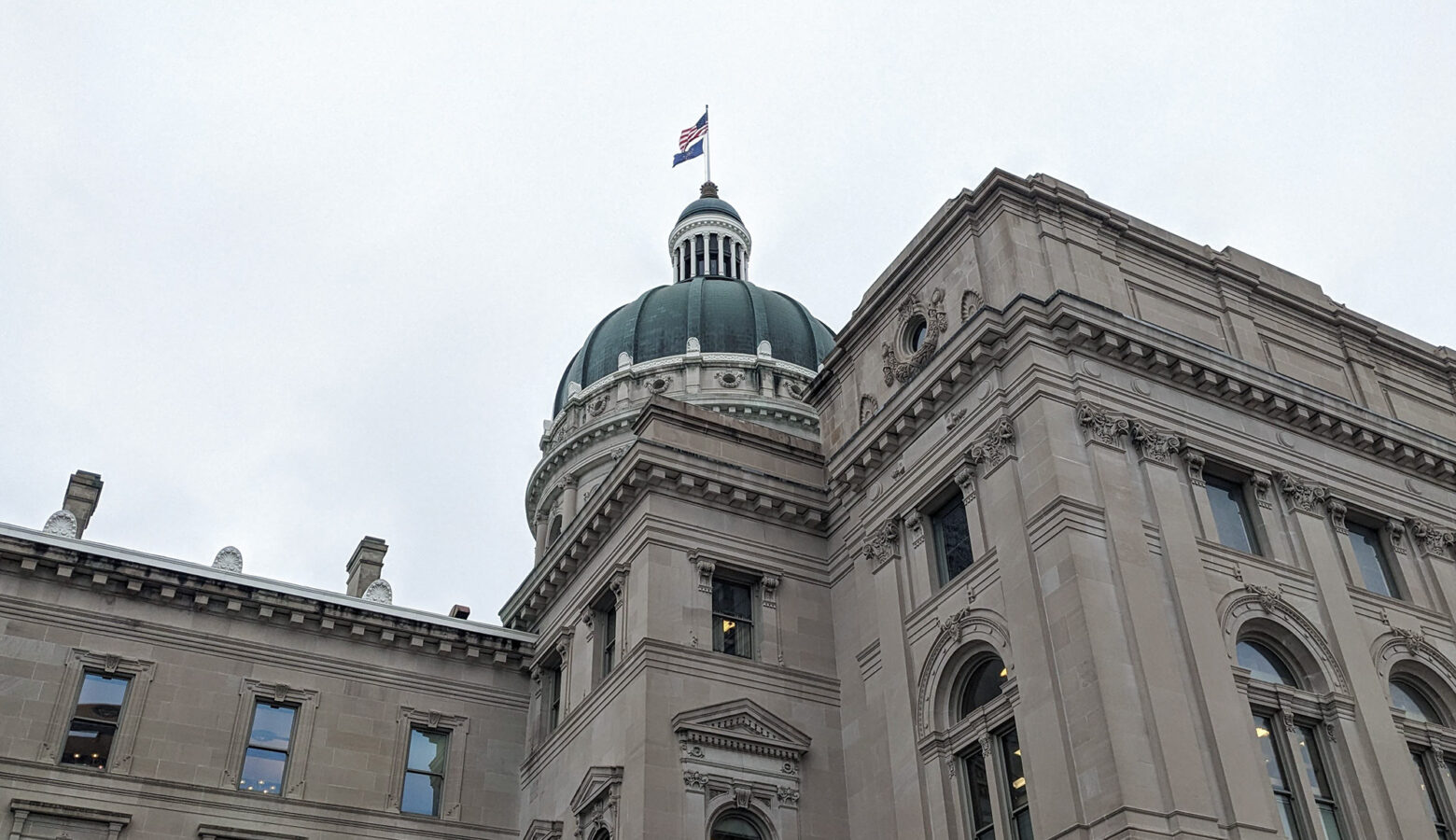Bill to define, ban antisemitism advanced unanimously by House committee

A bill to define and ban antisemitism in Indiana public education institutions passed unanimously out of a House committee Wednesday.
House Bill 1002 would use a definition of antisemitism adopted by the International Holocaust Remembrance Alliance, the U.S. Department of State and the U.S. Department of Education.
Indiana law currently specifies the state is to “provide educational opportunities free of religious discrimination.” This bill would ban antisemitism in public educational institutions, asserting antisemitism is religious discrimination.
Several hours of testimony included those who heavily supported the bill and those who were fervently against it.
Support for the bill
Supporters of the bill argue it is crucial to protect Jewish Hoosiers.
Ben Auslander is a junior at Carmel High School. He said without a definition for antisemitism, Jewish students in schools and on college campuses are vulnerable to discrimination.
“Before we can fight antisemitism, we must first be able to define antisemitism,” he said. “All students deserve the right to be able to be students free from discrimination, and feel safe in their classrooms and on campuses.”
Ben Zilberman is a junior at Purdue University. He said he often notices a lack of education about Jewish history and culture at his school, which he said can lead to misconceptions. He said he is hopeful this bill could change that.
“This will springboard the increased visibility for Jews across the state of Indiana,” he said. “More visibility will further allow for more learning about my faith and religion – ensuring the next generation of Jewish Hoosiers and Boilermakers have the experience of being completely understood, protected and accepted on their college campuses.”
Emma Law-Oppman is a member of Mothers Against College Antisemitism. She cited examples included within the International Holocaust Remembrance Alliance’s definition of antisemitism that she said would be helpful in educating other Hoosiers on Jewish culture and history.
“Adopting the IHRA definition of antisemitism will also serve to raise awareness about the historical and contemporary manifestations of antisemitism,” she said. “The IHRA definition of antisemitism addresses various forms of antisemitism, including traditional manifestations, Holocaust denial, conspiracy theories, and the targeting of Israel using demonization, double standards, or delegitimization.”
Others testifying included students at various high schools and colleges citing antisemitism they encountered on campus, and other Hoosiers discussing rising hate following the Oct. 7 Hamas attacks.
Opposition to the bill
Those testifying against the bill argued it goes against free speech principles and could increase anti-Palestinian and anti-Arab rhetoric.
Join the conversation and sign up for the Indiana Two-Way. Text “Indiana” to 765-275-1120. Your comments and questions in response to our weekly text help us find the answers you need on statewide issues, including our project Civically, Indiana.
Anisse Adni is a Muslim teacher in Indianapolis. He said the bill’s language is too general, and believes it could restrict freedom of speech – particularly for educators.
“We should not conflate antisemitism with criticism of the Israeli government and its policies,” he said. “So I ask committee members not to include vague and ambiguous language and examples that would restrict our constitutional right to freedom of speech.”
Hiba Alalami is with the Indiana Muslim Advocacy Network. She said she feels the bill does not allow for a criticism of the state of Israel without being viewed as antisemitism – which she said limits free speech.
“The IHRA definition has already been wielded as a tool to suppress free speech and criminalize criticism of Israel and support of Palestinian rights,” she said.
Alalami said the bill’s definition of criticism of Israel is not specific enough and may cause a chilling effect for those afraid to speak out against the state.
Daniel Segal is a Jewish Hoosier representing Jewish Voices for Peace of Indiana.He echoed the fears that the bill’s placement of criticisms of Israel was “confusing” and may lead educators to be hesitant to speak openly about Israel and Palestine.
“HB 1002 makes it harder to fight the scourge of antisemitism, because its sole purpose is to sow confusion about antisemitism,” Segal said. “We cannot fight what we are confused about. HB 1002 sows confusion about antisemitism by the trickery of placing criticisms of the Israeli state into the category of antisemitism. It does this with its examples and the language in the bill.”
Many of the opponents of the legislation also cited the IHRA’s examples in its definition of antisemitism and said some of the examples closely associate criticism of Israel with antisemitism.
Others testifying included university students who said the bill could increase anti-Palestinian and anti-Arab sentiments on college campuses.
A similar bill was filed during the 2023 session. It passed the House unanimously, but never received a Senate committee hearing.
The bill now heads to the House floor for a vote.
Violet is our daily news reporter. Contact her at [email protected] or follow her on Twitter at @ComberWilen.


